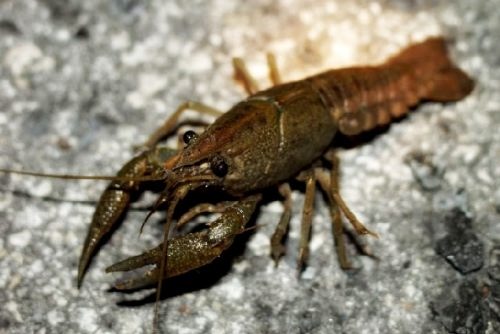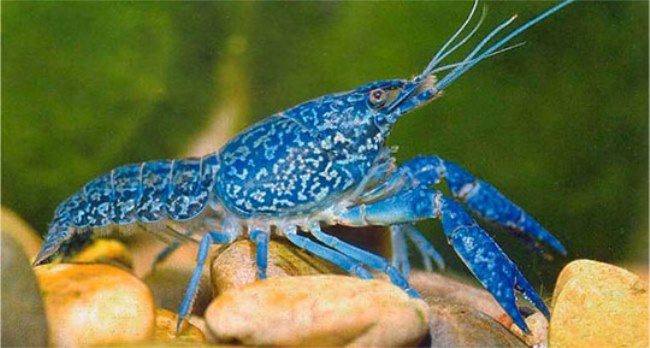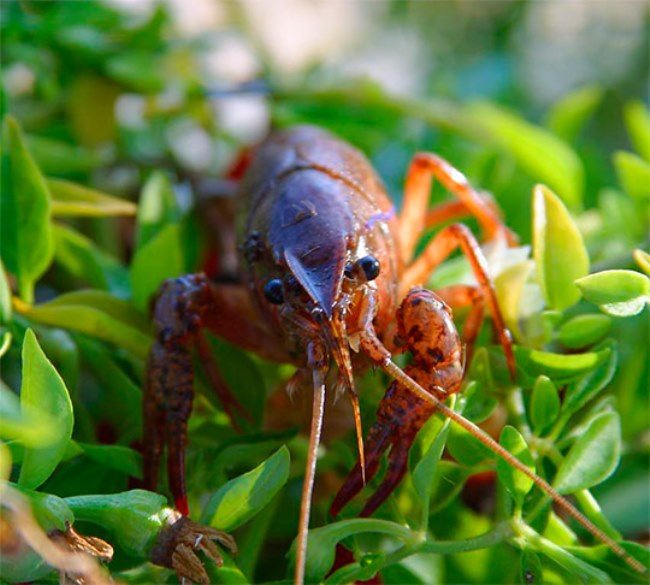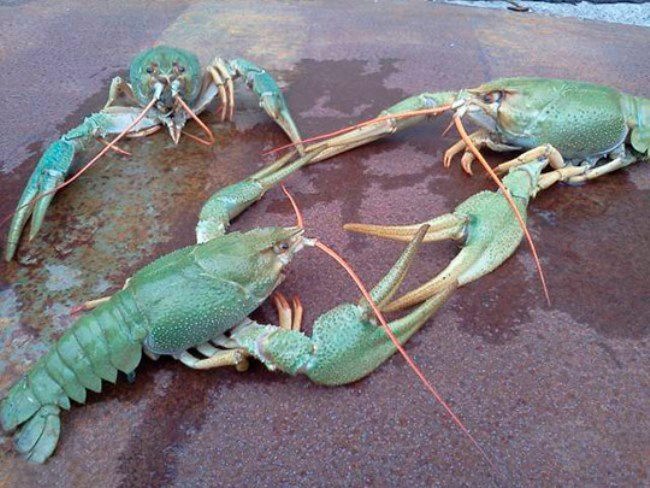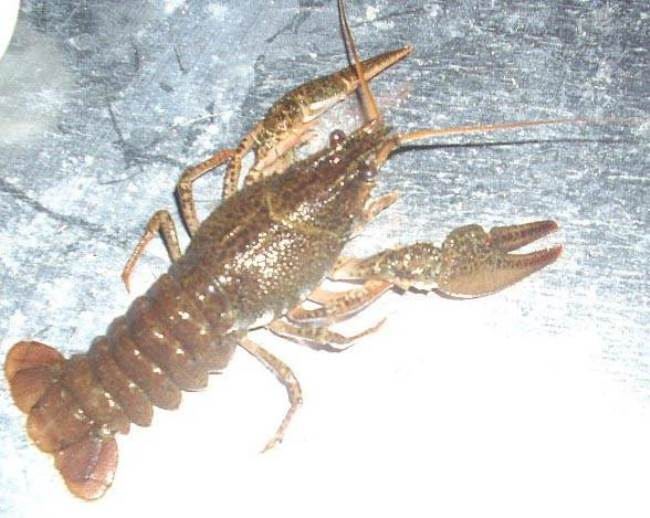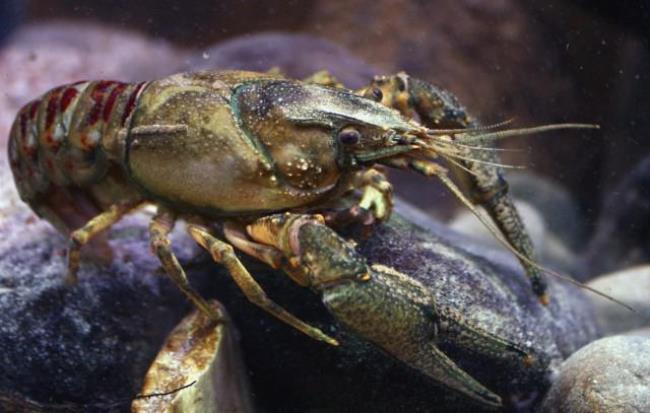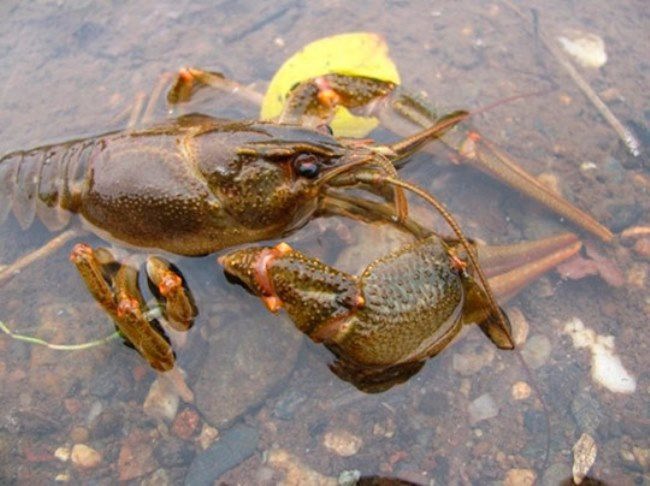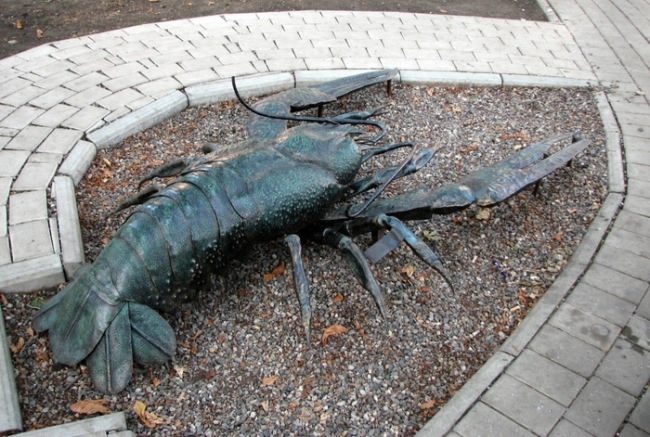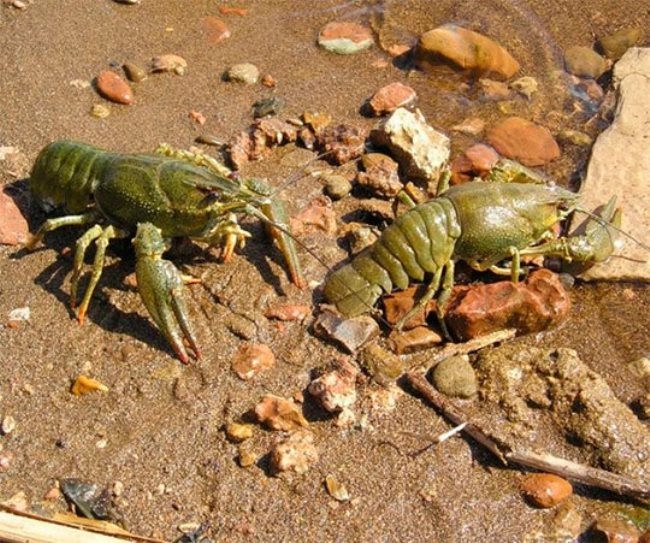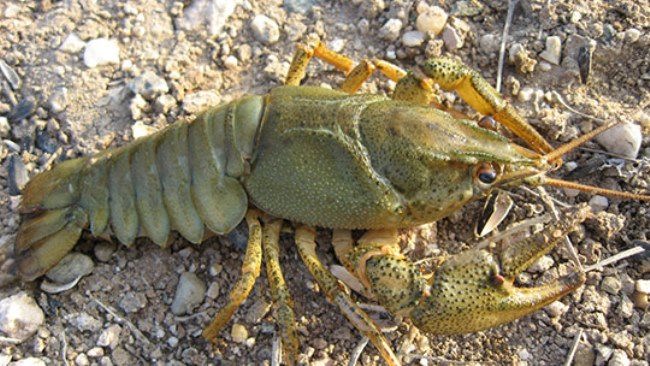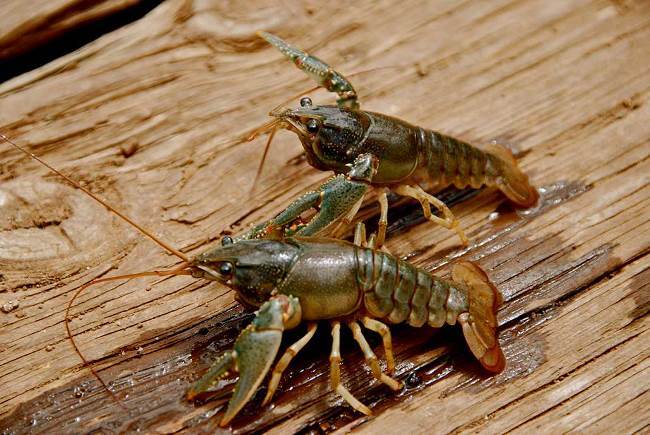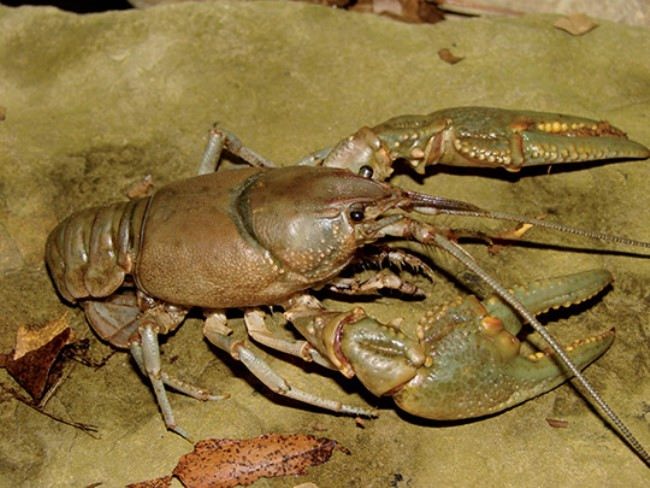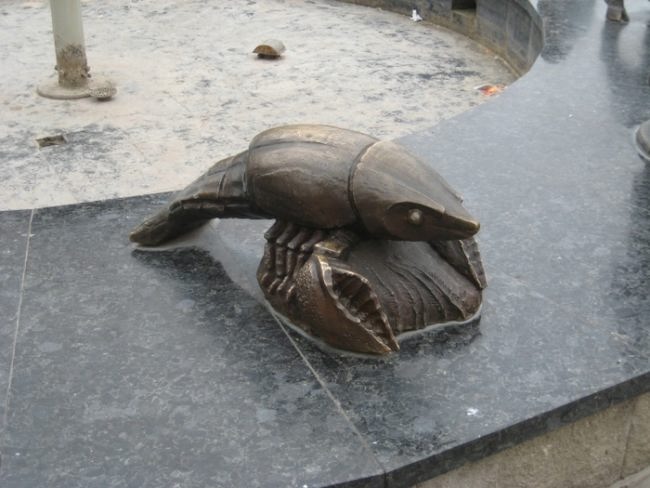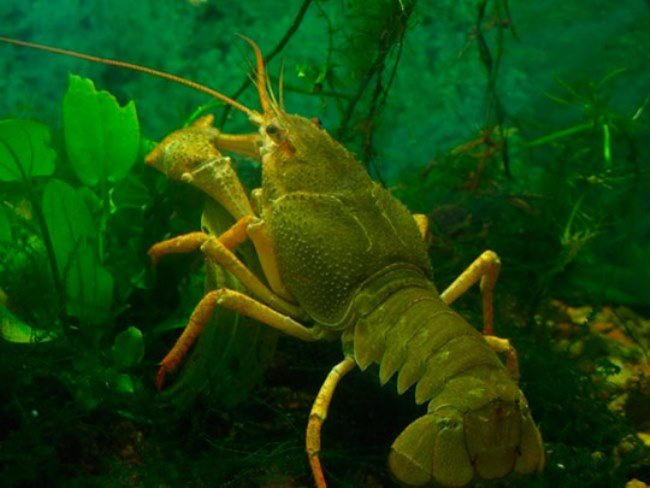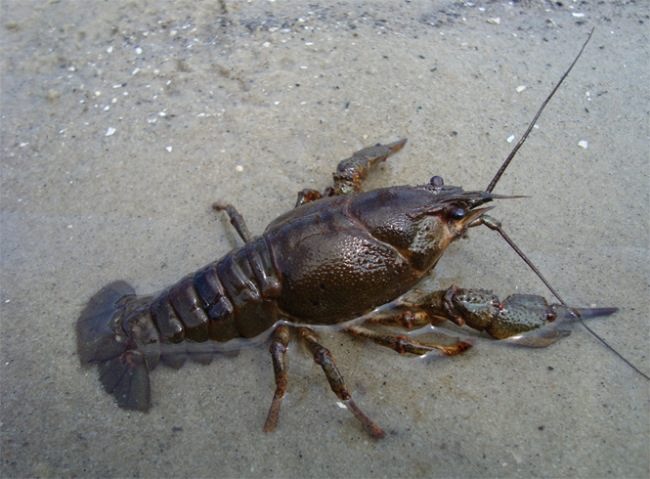Crayfish – amazing creature
Crayfish are freshwater crustaceans of the order Decapoda, which includes crabs, shrimps, lobsters, and hermit crabs. Crayfish are found on all continents on Earth except Africa and Antarctica. They are an essential part of the food chain. They feed on algae, insects, mussels, and snails, while fish, herons, otters, and other larger animals feed on them. This feeding balance has been maintained for hundreds of thousands of years. Unfortunately, people destroy this balance.
Crayfish evolved from marine ancestors dating back some 280 million years. There are more than 300 species of crayfish worldwide. Although nearly half of the species are endangered or imperiled. They live in water, hiding beneath rocks, logs, sand, mud, and vegetation. Some species dig burrows.
Crayfish are usually colored in earth tones of muted greens and browns. Five pairs of strong, jointed, armored legs are used for walking and digging. Two pairs of small antennae are used in foraging and finding a mate. Two compound eyes provide excellent vision.
In fact, crayfish are used by humans as live fish bait, and are also a popular culinary delicacy.
The Hell Creek Cave crayfish is colorless. An average adult measures 6.6 centimeters long. Like other crayfish, it feeds on both plants and animals. They go directly from an egg to a miniature adult form, but reproduce very slowly. Biologists believe they lay eggs once every five years. Crayfish are preyed on by bass, sunfish, raccoons, otters, herons, and kingfishers. The Hell Creek Cave crayfish is found only in a deep pool in Hell Creek Cave in Stone County, Arkansas.
The Nashville crayfish, also called the Shoup’s crayfish, measures about 5 centimeters long. It consumes plants and animals, including algae, insects, worms, fish eggs, snails, and mussels. Raccoons, fish, and reptiles are among the main predators of this crayfish. This crayfish is found only in Mill and Sevenmile Creeks, Tennessee.
